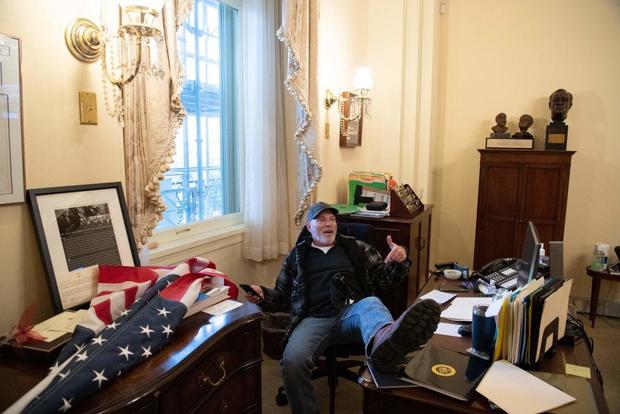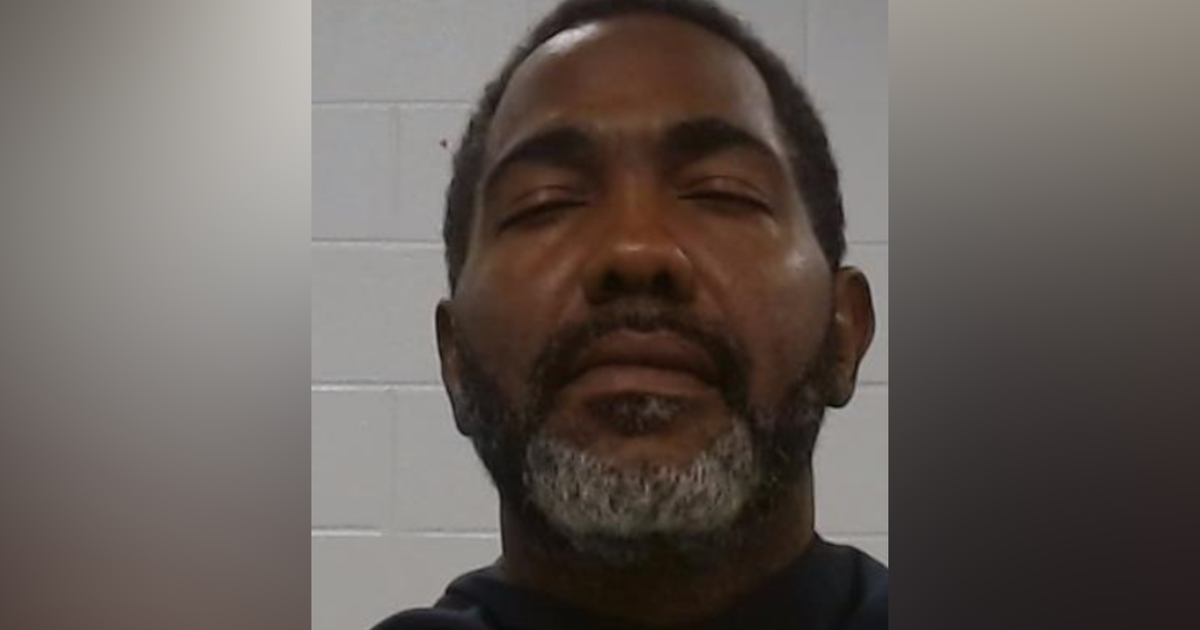Accused Capitol rioter photographed with his feet up on Nancy Pelosi's desk released from jail
A federal judge on Tuesday ordered that Richard Barnett, the man who was photographed sitting at Speaker Nancy Pelosi's desk during the January 6 attack on the U.S. Capitol, be released from jail pending trial.
Barnett, 60, left the Washington, D.C., jail where he was being held Tuesday night and will be placed on home detention and subject to GPS monitoring at his home in Arkansas, according to the ruling. He will be prohibited from having any weapons in his home. Federal Judge Chris Cooper said that Barnett, who has been in jail since January, should be released because he does not present a danger to society.
The ruling reverses a January decision from Chief Judge Beryl Howell, who decided to detain Barnett pending trial. At the time, Howell said Barnett's "total disregard" for the law should keep him behind bars. Barnett has pleaded not guilty to seven criminal charges.
Prosecutors argued during a hearing on Tuesday for Barnett's continued detention, citing his attempts to avoid detection from law enforcement following the riot, possession of a stun gun in the Capitol, ties to QAnon conspiracy theories and the disturbing note he left for Pelosi.
But Cooper said that, while the facts of the case are concerning, he did not believe the prosecutors provided specific evidence to indicate Barnett would commit a future act of violence that would endanger the community. Cooper cited the recent appeals court decision to release Eric Munchel, one of the men who was allegedly photographed carrying zip-ties in the Capitol.
"The burden faced by the government, clear and convincing evidence, has just not been met in this case, in my view," Cooper said at the hearing.
The prosecutor, Mary Dohrmann, revealed at the hearing that she has started plea negotiations with Barnett's lawyers, but has not formally presented a plea offer. She said at the hearing that if Barnett were to be found guilty on all charges, the estimated sentencing guidelines would range between 70 and 87 months in prison.
Cooper said Tuesday's ruling is not an indication of what he will do at sentencing if Barnett pleads guilty or goes to trial and is convicted.
Cooper ended the hearing with a stark warning to Barnett: "Consider this a test, okay?"




